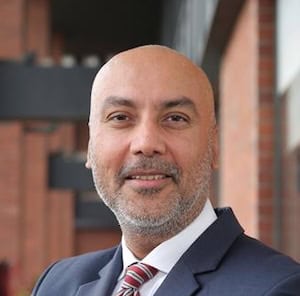-
Pay For Success: Can Social Impact Bonds Provide the Fabled “Win-Win-Win”?
Goldman Sachs recently made headlines by investing in a Massachusetts nonprofit that tries to keep young men out of jail. The investment was part of the largest social impact bond or "pay-for-success" effort to date in the U.S. Rick Edwards of Third Sector Capital Partners discusses the benefits and risks of the approach in part two of our Impact Investing Insights series.
- Categories
- Impact Assessment
-
How a Blended Model Can Solve Some Market Failures (Part 2): Gradian Finds a Way to Scale Anesthesia Machines According to Demand
Like a traditional business, Gradian spends money on market creation for its anesthesia machine. Unlike a traditional business, however, the company doesn’t expect to recoup that cost; it’s paid for with philanthropic funding so Gradian can offer the machine at as low a cost as possible.
- Categories
- Environment, Health Care
-
April’s Most Popular Posts: Better housing loans, a letter to Google and impact investing growing pains
One of the most satisfying things about working here at NextBillion is getting to publish articles from first-time writers. It’s especially satisfying to see those rookie contributors shoot to the top of the most viewed list for the month. That was the case in April.
- Categories
- Investing
- Tags
- housing, impact investing
-
How a Blended Model Can Solve Some Market Failures (Part 1): Foundation-owned social enterprise combines features of philanthropy, business
Medical equipment manufacturers face challenges selling in low-income countries. That led Gradian Health Systems to adopt a foundation-owned social enterprise model, allowing it to function as both a commercial entity and a nonprofit.
- Categories
- Environment, Health Care
-
Five Ways to Make Electronic Delivery of Social Transfers Work for the Poor: Insights from CGAP’s recent Focus Note
Cash transfers are an increasingly popular tool to provide assistance to the poor, with nearly 174 million individuals in 43 countries receiving them. E-payments could improve the effectiveness of social transfers, but it’s very difficult to implement them effectively. A recent study conducted by Bankable Frontier Associates explores four programs on the cutting edge of designing and implementing e-payments in low-income settings.
- Categories
- Education
-
Why U.S. Food Safety Overhaul Threatens Global Farmers
In the USFDA’s first major overhaul since 1938, new food safety requirements will demand higher standards of accountability than most smallholder farmers can provide. One solution: Low cost, cell-phone enabled software that helps smallholder farmers track produce.
- Categories
- Agriculture
-
NexThought Monday – Liquidity Farming: How the poor cultivate relationships to create sources of future cash
Poor people have a variety of ways to make money materialize, from agriculture and trading to investing in livestock or land. But a large portion of their industry is directed at farming liquidity, says Ignacio Mas. As Mas and John Gitau describe it, this involves cultivating a variety of techniques for converting their intricate social networks into potential sources of cash.
- Categories
- Uncategorized
-
Weekly Roundup – 5/24/14: ColaLife founders show the power of listening and adapting
Why did Simon Berry and his ColaLife team decide against including medicine in crates of Coke delivered to the most remote and medically underserved regions in the world, despite dreaming about doing just that for 20 years? Because they learned “it was the space in the market that was important, not the space in the crates,” Berry said.
- Categories
- Health Care









